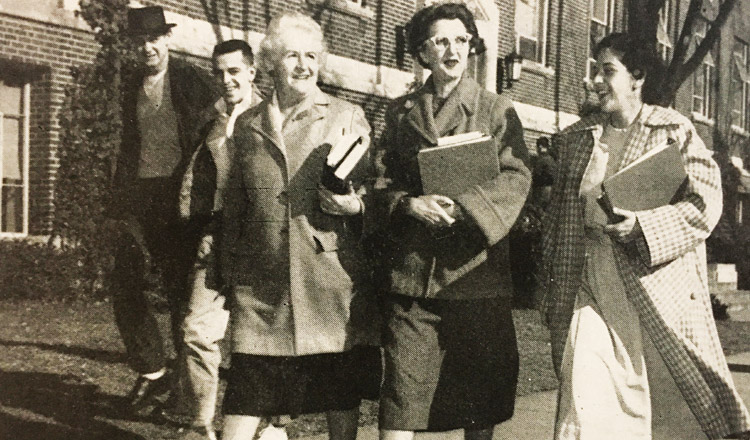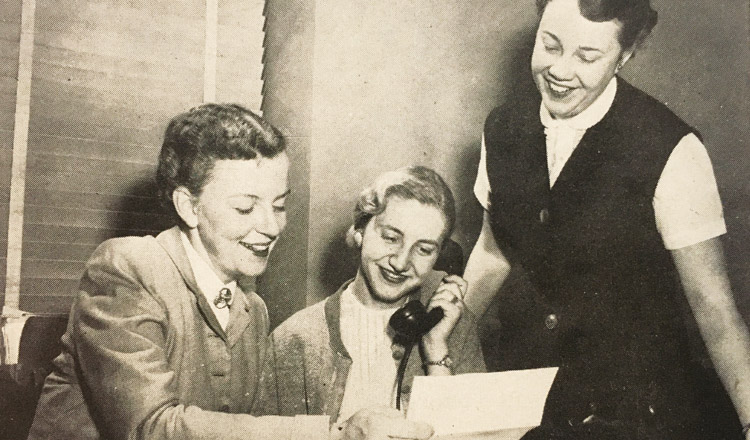In the 1950s and ’60s, the Associated Women Students — an activity group encompassing all of Purdue’s women students — held an annual event known as Dean for a Day, during which students would switch places with the dean of women and her assistant deans. The deans would attend classes, and the students would fulfill the deans’ duties — joining in meetings, conducting freshman interviews, appearing at events, and entertaining visitors. The day before the exchange of responsibilities, the deans accompanied the students to their classes to learn the ropes.
Students would campaign for the opportunity, and the campus would elect a few women to take part in the dean swap. Jackie (Buchsbaum) McCallum (LA’56) was chosen to serve as the second assistant dean in 1955 and ran with the slogan, “Vote Jacky, By Quacky.” During her tenure, she took on the duties of assistant dean Helen Barr.
“It was an honor to be elected, I suppose, but all I could think of was that I would miss four classes, including a test which I wanted to postpone anyway,” McCallum wrote at the time. “Before the big day actually arrived, the other newly elected deans and I got together to appear in a pep rally and to perform other decanal tasks. We began to practice in our mirrors those facial expression we deemed appropriate to our offices — stern glances with eyebrows squeezed together … straightforward looks of innate intelligence and superiority. And with this self-discipline, we convinced ourselves that if anyone who wasn’t acquainted with the facts entered the dean’s office on our Friday, we would surely be mistaken for the real thing.”

McCallum spent the morning interviewing first-year students to uncover any difficulties they encountered in the first few months of school; meeting with staff from the dean of men’s office; and attending a Veterans Day convocation. Afterward, the bona fide deans invited the interim deans to lunch, and McCallum and her cohort were amazed by the role reversal. “They actually treated us to our meals, pulled out our chairs, took our coats, did all the other little things we would normally have expected to do for them,” she wrote. “After lunch, each of us went to the home of her respective dean and saw how the ‘other half’ lives. I was reluctant to go back to the office, but since I was a working woman, I had obligations to fulfill.”
At the end of her shift, McCallum was presented with a brass Buddha statue as a memento. “Its sedate, knowing countenance serves as a daily reminder of my original notion concerning the essential nature of deans of women,” she wrote. “No longer are deans brass idols with no life. And no longer am I merely a college student with naive notions.”

